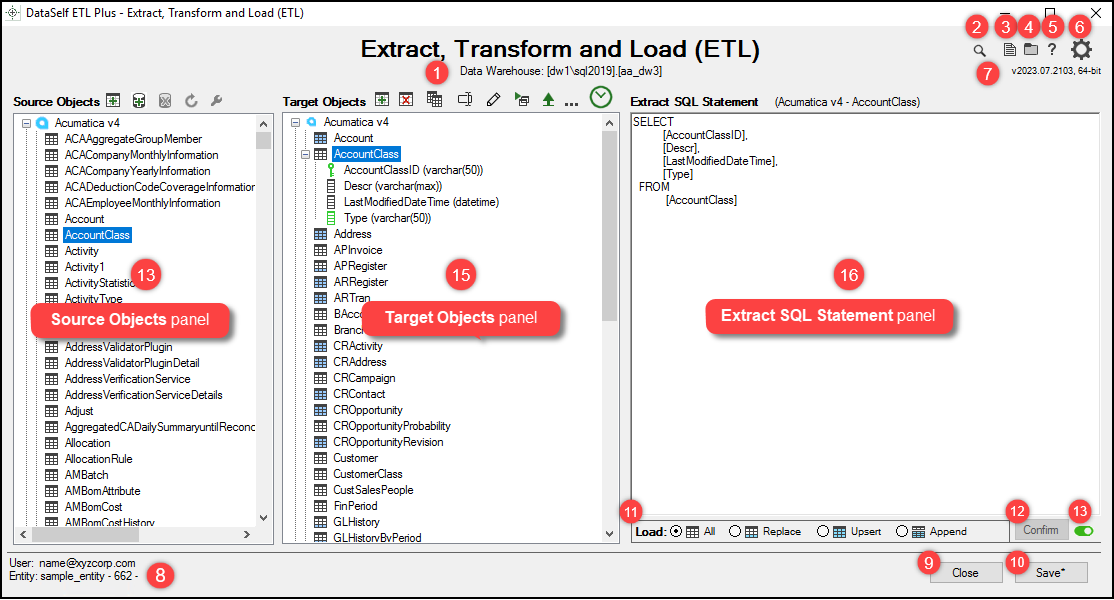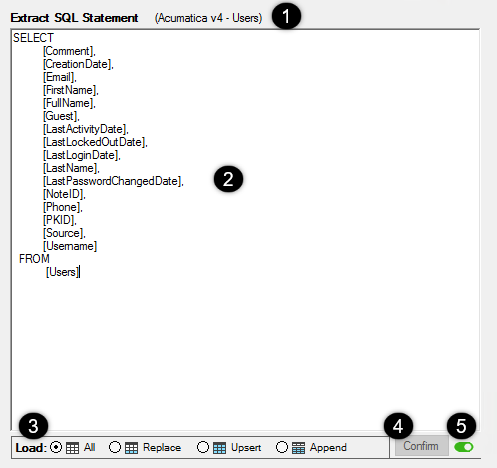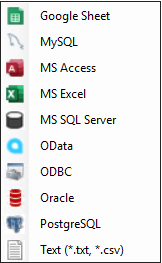ETL+ Extract SQL Statement Panel
SQL statements in the Extract SQL Statement panel of ETL+ Extract, Transform and Load (ETL) window must work with the SQL syntax supported by the ETL+ source driver used to connect to the Source Object.
The SQL statements and syntax used in the Extract SQL Statement panel must work with the SQL syntax supported by the ETL+ Source Driver used to connect to the associated Source Object.
Proper Usage of SQL in the Extract SQL Statement
Use T-SQL syntax for MS SQL Server data sources.
For other source drivers refer to the source driver table below for the appropriate SQL variant. For instance, Use MySQL’s dialect of SQL for MySQL sources.
Use ANSI Standard SQL if unsure. In case of issues, be sure to check the source’s documentation and syntax since most of them have variations from the regular ANSI Standard.
Examples of SQL in Extract SQL Statement: Sage 100 ProvideX SQL Examples for ETL+, Sage 100 Providex SQL Syntax


SQL Syntax to Use with Various Source Drivers and Source Systems

ETL+ Source Drivers menu
Source Driver | SQL Syntax to Use |
|---|---|
Google Sheet | -- |
MySQL | -- |
MS Access | -- |
MS Excel | |
MS SQL Server | Date and time data types and functions (Transact-SQL) Microsoft T-SQL – this site |
OData | Acumatica OData SQL Syntax & Examples, |
ODBC | Source database system/DBMS that ODBC connects to. |
Oracle | -- |
Sage 100 – ODBC Providex driver | – Guide to finding SQL documentation in this reference manual.
|
PostGreSQL | -- |
Text File (.csv) |
Miscellaneous SQL Syntax Tips
CONVERT vs. CAST
SELECT
[column1],
1 AS [column2],
CONVERT(varchar(30), GETDATE() ) AS [column3]
FROM
[sourceTableName]The CONVERT function is specific to T-SQL and is not part of the ANSI standard. Use CAST for non SQL Server data sources. ETL+ Extract SQL Statement: CONVERT()
Comments in SQL
-- 1 as [someTable] comments out 1 line
/* comments out everything until closing delimiter
more comments
more comments */Related Pages
v2023.07 ✅
